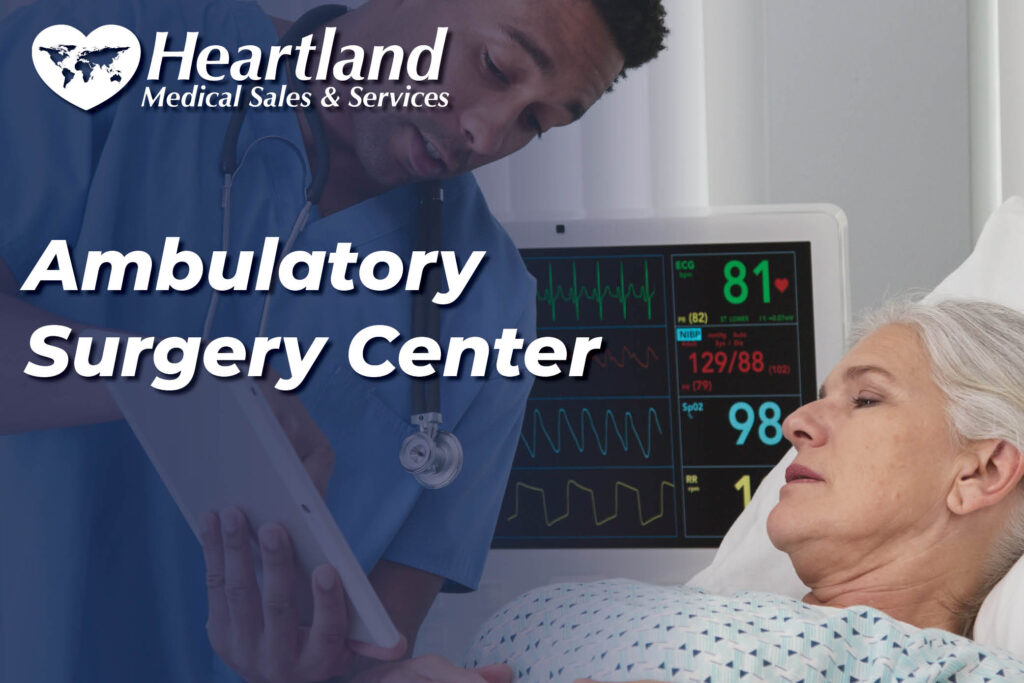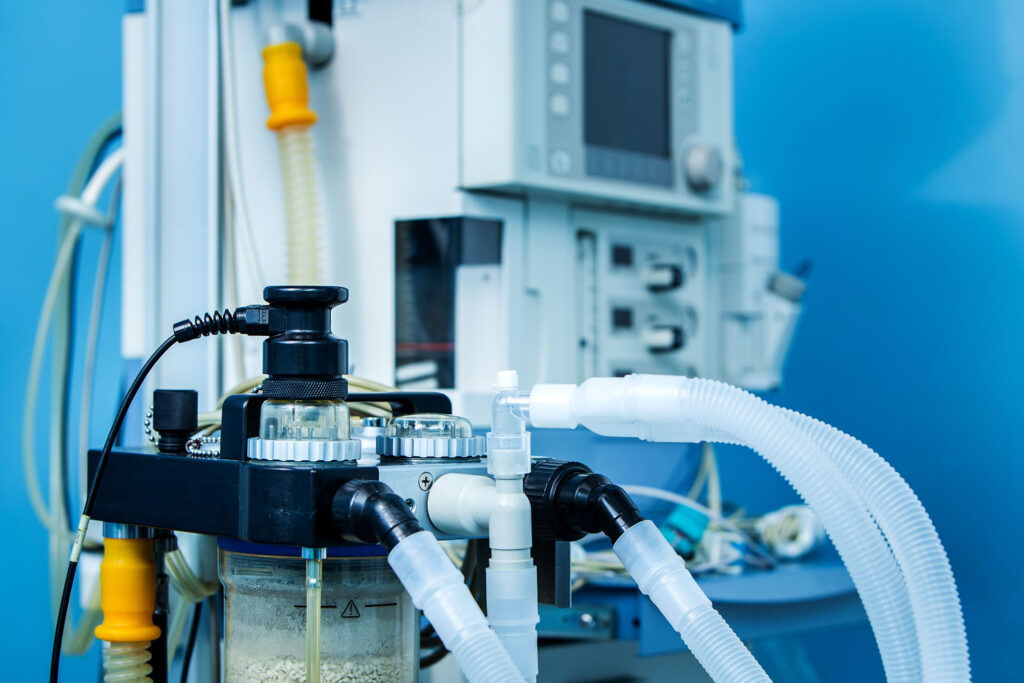An ambulatory surgery center is a medical office that offers outpatient surgical procedures. This facility has become popular because it can provide faster recovery times for patients who don’t need to be admitted into the hospital for an extended time period. The cost of ambulatory surgery also tends to be lower than traditional hospital-based operations.
The number of people opting to have their operation done at an ambulatory surgery center has risen over the past few years. Many individuals choose this option due to its convenience and affordability. The following blog post will cover what ambulatory surgery centers are and how they work.
Outpatient Surgical Care and ASCs
Surgical care is a major part of healthcare. Outpatient surgical treatment, also known as day surgery or ambulatory surgery, offers patients the convenience and comfort of getting minimally invasive procedures in an outpatient setting. This type of surgical care allows patients to undergo minor surgeries in a day treatment setting instead of an inpatient hospital. This means that there are no overnight stays or overnight nursing involved, and the patient can be discharged home once their surgeon has given them clearance.
There are many benefits of outpatient surgery, including decreased cost, convenience for the patient, and less time required from healthcare providers. Outpatient surgeries have become increasingly popular over recent years, with more procedures being performed outside of hospitals every year.
Why Should You Consider ASCs?
There are many reasons why you should consider an ambulatory surgery center for your next surgical procedure:
1. There is a much lower rate of infection in these outpatient centers than in hospitals.
2. The average length of stay after surgery is only one day.
3. People who go to ambulatory surgery centers can typically return to work around two weeks after their surgeries, while those who have operations done in hospitals need four weeks off before returning to work.
4. They provide patients with more privacy and comfort during their procedures because it’s not as crowded or chaotic as a hospital would be.
Growth of Ambulatory Surgery Centers
In the past, hospital surgeries were the only option for medical procedures. However, with advances in technology and a shift towards preventative medicine, more people are choosing outpatient surgery centers to help them maintain a healthy lifestyle. Ambulatory surgical centers have become popular with patients who want convenient healthcare without being hospitalized overnight following their procedures.
As health care has evolved from being exclusively reserved for those who need emergency treatment into preventive care focused on maintaining wellness, surgical procedures have also been shifting.
Procedures Offered
ENT Procedures
ENT procedures are surgeries that target the ears, nose, and throat. Ambulatory surgical centers specialize in these types of surgeries because they take less than an hour to perform. Sometimes, patients may need surgery done at an ambulatory center if it is not a time-sensitive procedure or if they have other health problems that would make them unable to stay overnight in a hospital.
This type of surgery can be anything from sinus surgery to ear tube placement for children with chronic middle ear infections. The staff at Ambulatory Surgical Centers offers post-operative care, but once you check out, you’re on your own. Therefore, it’s important to follow the aftercare instructions given by your doctor carefully.
Orthopedic Procedures
Orthopedic procedures are performed on the bones, joints, and other tissues in the body’s musculoskeletal system. The musculoskeletal system is made up of muscles, ligaments, tendons, and bones. Orthopedic surgeons perform all kinds of surgical procedures to correct damage or disease affecting this complex network of organs within our bodies.
Many different orthopedic procedures are performed at Ambulatory Surgical Centers (ASCs), including total hip replacements, knee arthroscopies, rotator cuff repairs, and more.
The most common procedure that people undergo at an ambulatory surgical center is knee surgery. The most common reasons for orthopedic procedures are arthritis, injury, or congenital disabilities.
Ophthalmology Procedures
Ophthalmology procedures at Ambulatory Surgical Centers mean that the patient only has to spend one day in the hospital instead of several days or weeks recovering from surgery. The recovery time is much faster because patients aren’t exposed to germs, decreasing their chances of infection.
It’s also comforting to know that there will be a medical team around if anything goes wrong with your procedure. Many different ophthalmology procedures are available at these centers, including cataract surgery and glaucoma management surgeries, such as trabeculectomy and laser treatments.
Vascular Procedures
Vascular procedures are any medical procedures that involve the vessels. The most common vascular procedures performed at an Ambulatory Surgical Center are angioplasties and stent placements. These procedures can be done on patients with cardiovascular diseases, such as coronary heart disease or peripheral artery disease.
A cardiologist or vascular surgeon will determine if you are eligible for these procedures based on your specific diagnosis and risk factors during surgery. An interventional radiologist is also involved in this type of surgical procedure to help place a catheter into the vessel, leading to the area where there is a blockage, narrowing, or clotting, which is then used to administer medication (usually called stenting).
Urology Procedures
Ambulatory surgical centers also provide services for urology procedures. They offer a range of services, including kidney stones, bladder stone removal, and other general surgery procedures that can be completed in a day. Those struggling with incontinence issues due to enlarged prostate glands, kidney stones, or other similar ailments can find relief at their local ambulatory surgical center.
Gastroenterology
Gastroenterology procedures are surgical procedures that address problems with the digestive tract. There are various gastroenterology procedures available to patients, and each procedure can be performed at an ambulatory surgery center (ASC). Ambulatory surgery centers offer the same quality care as hospitals but operate outside of them.
Patients can expect more privacy and fewer interruptions during their stay at an ASC than they would get in a hospital setting. Additionally, most gastroenterology procedures can be scheduled for times that work best for you and your family.
Advantages of Ambulatory Surgery Centers
Convenience
Ambulatory surgical centers provide convenience to patients and physicians alike. These outpatient facilities allow for quick recovery times, which means that the patient is back on their feet in no time. Physicians also benefit from these facilities because they can perform more surgeries throughout the day instead of one or two at a hospital with only so many rooms available.
In addition, these locations are known to reduce costs compared with traditional hospitals. This allows insurance companies and individuals to save money while getting high-quality care without traveling far distances.
Cost
Ambulatory surgical centers are more cost-effective than hospitals. Their average operating costs are lower as opposed to hospitals. This is due in part to their smaller size and fewer personnel needs. They also require less expensive equipment because procedures take place on an outpatient rather than inpatient.
Ambulatory surgery centers have been growing exponentially over the past few years. The trend is being driven by consumers who want lower prices and better facilities with shorter wait times for procedures, such as knee replacements or hernia repairs.
Efficiency
Ambulatory surgical centers help provide efficiency in the healthcare industry. In recent years, this trend has grown exponentially because of overcrowding issues at hospitals. In the United States, medical costs are rising. Many hospitals and surgical centers have turned to Ambulatory Surgical Centers (ASC) for efficiency and cost savings to combat these rising costs.
Innovations like these show that healthcare is changing in response to high prices and increased demand from patients who want more affordable options for their health care needs.
Fewer Complications
Ambulatory surgical centers have been found to have fewer complications and greater efficiency than hospital-based surgery. The study looked into efficiency rates of ASCs and found that that the recorded data supported the fact that spine surgeries in ASC are safe and efficient. Another study found that patients treated at ASCs have higher patient satisfaction rates.
Ambulatory surgical centers are less expensive than hospitals, safer, and more convenient. If you’re having surgery soon and can’t make it home from the hospital for a few days, ask your doctor about going to an ambulatory surgical center instead.
Calmer Settings That Ensure Reduced Stress
Ambulatory surgical centers offer a calmer setting that ensures reduced stress. If you have been to a hospital recently, you likely found the experience overwhelming and chaotic due to many people present in close quarters. Ambulatory surgical centers are different as they allow patients to go home or back to work right after surgery, so there is no need for an overnight stay
While operating rooms at hospitals can be busy with doctors and nurses, ambulatory surgical centers operate with only one doctor and one nurse who will take care of multiple patients at once.
Are Ambulatory Surgery Centers As Qualified as Hospitals?
Many people assume that because ambulatory surgery centers are less expensive than hospitals, they must not have qualified doctors and nurses. However, this is not true at all. Many facilities offer a wide range of services equivalent to what you would receive in a hospital.
This includes 24/7 emergency care with access to an intensive care unit should it ever become necessary. The only catch? You must keep your doctor’s office informed if you plan on receiving treatment elsewhere so that their records can be transferred over accordingly.
The Future of Ambulatory Surgery Centers
The future of ambulatory surgery centers is bright. With their numbers increasing, many wonder if the number of ASCs will continue to grow. While some believe it may level off soon, several factors support continued growth and development within this market. Healthcare providers need to understand these trends before making an investment or expansion into this field.
In the last ten years, there has been a dramatic rise in interest in ambulatory surgery centers. This number is expected to increase exponentially as more and more Americans tend to have an aversion to being admitted into hospitals. The patient’s comfort is of the utmost importance when going through a medical procedure or treatment, so it makes sense that this trend would continue to skyrocket in popularity.
Patients choose not to go under general anesthesia in a hospital setting and instead opt for outpatient surgical centers. Many people feel intimidated by hospitals and do not want to spend their time there during such times of discomfort and pain.
Who Can Be Treated at Ambulatory Surgery Centers?
Ambulatory surgery centers are a great option for those who want to have their surgeries in a more relaxed environment with less stress. You may think that this type of surgery center only treats certain procedures, but they offer several procedures. This includes cosmetic procedures like rhinoplasty or liposuction, as well as heart bypasses and hip replacements. You can even get your wisdom teeth removed at one of these facilities.
Final Word
Ambulatory surgery centers are an important part of the health care industry and one of the newest innovations in healthcare. The idea is that patients can go to them for all their surgical needs, whether cosmetic or medical, without staying overnight at the hospital. This allows people who don’t want their daily life disrupted by an extended stay at a facility and those with busy schedules more flexibility when they need it most.
This blog post has covered what ambulatory surgery centers are, how they work, and their advantages over traditional hospitals. The next time you have an operation, consider going to an ambulatory surgery center instead. You may be able to get in faster than waiting for weeks at a hospital to get on the surgical wait-list.
Contact your local healthcare provider today if this sounds like something that might interest you or if you need more information about ambulatory surgeries before deciding anything. They can help answer any questions or concerns so that you feel confident with whatever choice is right for you.
"*" indicates required fields







